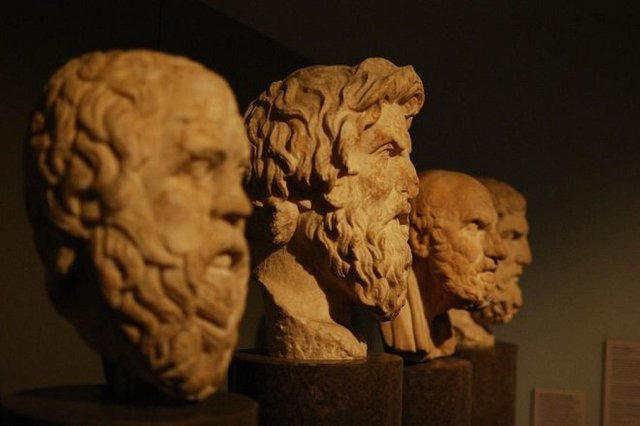Ancient philosophy. Some thoughts about Aristotle and Alexander of Macedon /part 7/
Such a man Aristotle could find in many ways in Alexander. But to imagine Alexander as an unconditional ideal he could not. He knew all the intrigues at the Macedonian court and all his bloody horrors. Alexander was a clever and educated man, a lover of science and art, who actually learned a lot from Aristotle. But he drank a lot in the last years of his life and died after a few drunken nights, losing his day off. Cicero in his treatise on "Debts" states: "The son of Macedonian king Philip has undoubtedly surpassed him with feats and glory, but with accessibility and goodness, Philip, as far as I know, outperformed his son. Thus, the father was always a great man, and the son was too often stupid. "
Undoubtedly, Alexander had a very high opinion of himself. Here comes the very difficult question for historians, namely, what is Aristotle's attitude towards Alexander. Aristotle was struck by the fact that Alexander proclaimed himself God, for the priest of the Egyptian god Ammon-Ra, who among other things identified the Greeks with Zeus-Gelosom, told him that Ammon considered Alexander as his son. The proclamation of Alexander the son of Ammon in Egypt was associated with a series of wonderful accidents. As he headed for this temple, Alexander and his companions walked through the wilderness. It is quite descriptive of Plutarch's next reasoning: "... if Alexander had set a goal in front of him, to keep him either impossible. The fate, patronizing his urgency, made him stubborn. " This, of course, was not only the stubbornness of his character, but also the tremendous political significance of his deification of a king. It is possible that Alexander initially did not set the purpose of deification, but went to this famous oracle to confirm the necessity of a march in Persia and to confirm the fact of Persian participation in the plot against his father Philip.
Such a second confirmation, Alexander did not get. But the oracle not only confirmed the necessity of a march but declared it a god like Dionysus. The idea of a world-wide empire of Alexander the Great did not take place. After his death his empire quickly collapsed. It was not until the 2nd century BC. it is a wonderful way to enlarge the Roman Republic, which took over from August / 1st century BC / 1st century AD /. Thus, if we look at the history of the ancient world as a whole, then the deification of Alexander will not seem to us as something fabulous and fantastic. Rather, we can see here the characteristic of the antiquity deification of all natural powers, ie. pantheistic orientation. Aristotle, shortly after Alexander's death, left for the neighboring island of Eubbe, where he settled in Euboea, Halkida. A number of writers, such as Justin, Procopius, argue that Aristotle went to Euboea for scientific purposes-to study the tides of the Euboea Sea called Euripus. According to another version, in Aphina, Evrimedona, a high priest, challenged Aristotle's lawsuit by accusing him of wickedness. It turns out that Aristotle blamed him for this hymn that he composed in honor of Germiya, a testimony of which is the inscription on the mound in Delhi. It can be concluded that under this kind of wickedness of Aristotle the Greek Democrats, who dreamed after Alexander's death to restore the former freedom of Greece, were accused.

This post has received a 4.75 % upvote from @boomerang.